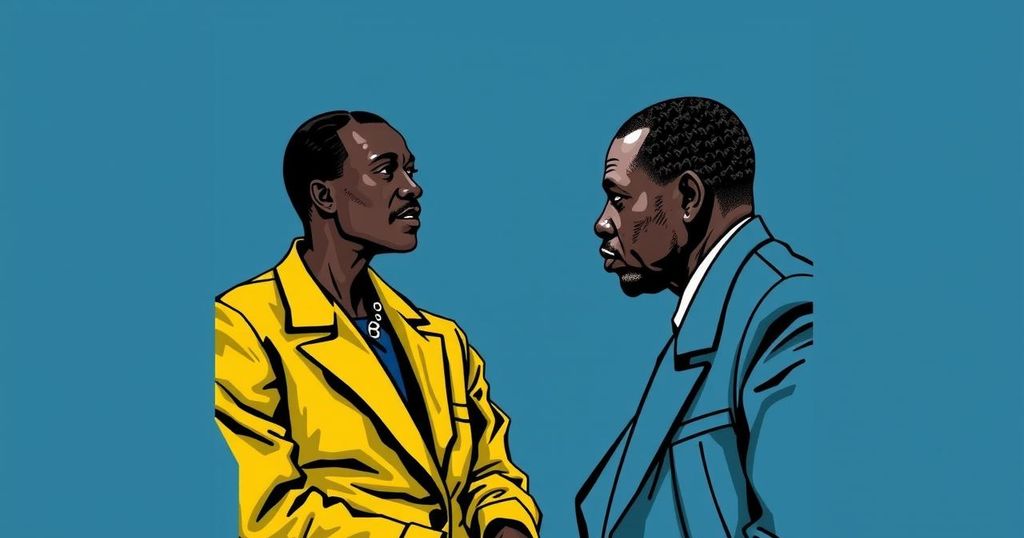The United States has expressed strong concerns regarding the controversial detention and extradition of Ugandan opposition leader Kizza Besigye from Kenya to Uganda. Besigye faces serious legal challenges, including military charges related to alleged illegal actions abroad, raising significant questions about jurisdiction and the legality of proceedings against him. The Kenyan government denies involvement in his abduction, while international diplomatic implications continue to unfold.
The United States government has issued a statement expressing serious concerns over the recent detainment of Kizza Besigye, a prominent Ugandan opposition leader, alongside his associate, Obeid Lutale. The statement, released by Assistant Secretary for the Bureau of African Affairs, Molly Phee, on November 21, highlights apprehensions regarding the circumstances of their arrest in Kenya and subsequent extradition to Uganda. This incident has garnered attention not only due to its transnational implications but also because of the legal challenges arising from the charges Besigye now faces in Uganda.
Kizza Besigye was reportedly seized in Nairobi prior to being forcibly transferred to Uganda where he faces military charges, including illegal possession of firearms in foreign territories. Prosecutors allege that the opposition leader conspired to destabilize President Yoweri Museveni’s government through meetings in various international locations, but these claims have brought up significant questions regarding jurisdiction and the legitimacy of a Ugandan military court to preside over alleged offenses committed outside of Uganda.
The defense team for Besigye has challenged the validity of the legal proceedings, particularly questioning the basis of the firearms possession charge. The U.S. State Department’s involvement underscores the broader diplomatic repercussions of this case, as the Bureau of African Affairs has called for enhanced legal protections and procedural transparency for both detained individuals. Meanwhile, the Kenyan government has refuted claims of its involvement in Besigye’s abduction, with Foreign Affairs Principal Secretary Korir Sing’Oei asserting that the relevant ministry had not been informed of Besigye’s travel arrangements, which deviated from typical protocols.
This diplomatic incident began when Besigye disappeared from Nairobi on November 16. His wife’s public appeal for his release brought international focus to the matter, leading to his eventual reappearance in a Ugandan military court within four days, where the unraveling of his charges continues to attract scrutiny and international concern.
The case of Kizza Besigye serves as a focal point for various issues related to political repression and transnational legal complexities in Africa. As a key opposition figure in Uganda and a vocal critic of President Museveni, Besigye’s treatment raises questions about the limits of governmental power and the legal rights of political dissenters. The involvement of the U.S. government signals a deeper concern over human rights practices within the region and the implications of international law in addressing such matters. This situation also underscores the importance of diplomatic relations and the role foreign governments play in protecting their nationals overseas, as well as the scrutiny of nations handling cases involving political prisoners.
In conclusion, the arrest and transfer of Kizza Besigye from Kenya to Uganda have sparked significant international concern, particularly from the United States. The case highlights complicated jurisdictional issues, raises serious questions regarding the fairness of legal proceedings in Uganda’s military courts, and underscores the need for procedural transparency and legal protections for political detainees. It also spotlights the diplomatic tensions surrounding the handling of political opposition in East Africa, with ramifications that extend beyond national borders.
Original Source: www.mwakilishi.com






